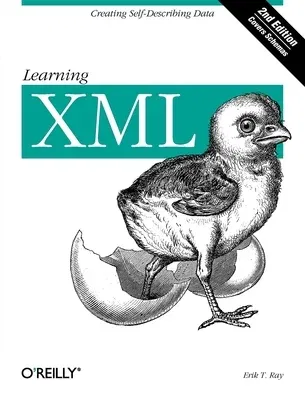This second edition of the bestselling Learning XML provides web
developers with a concise but grounded understanding of XML (the
Extensible Markup Language) and its potential-- not just a whirlwind
tour of XML.The author explains the important and relevant XML
technologies and their capabilities clearly and succinctly with plenty
of real-life projects and useful examples. He outlines the elements of
markup--demystifying concepts such as attributes, entities, and
namespaces--and provides enough depth and examples to get started.
Learning XML is a reliable source for anyone who needs to know XML,
but doesn't want to waste time wading through hundreds of web sites or
800 pages of bloated text.For writers producing XML documents, this book
clarifies files and the process of creating them with the appropriate
structure and format. Designers will learn what parts of XML are most
helpful to their team and will get started on creating Document Type
Definitions. For programmers, the book makes syntax and structures
clear. Learning XML also discusses the stylesheets needed for viewing
documents in the next generation of browsers, databases, and other
devices.Learning XML illustrates the core XML concepts and language
syntax, in addition to important related tools such as the CSS and XSL
styling languages and the XLink and XPointer specifications for creating
rich link structures. It includes information about three schema
languages for validation: W3C Schema, Schematron, and RELAX-NG, which
are gaining widespread support from people who need to validate
documents but aren't satisfied with DTDs. Also new in this edition is a
chapter on XSL-FO, a powerful formatting language for XML. If you need
to wade through the acronym soup of XML and start to really use this
powerful tool, Learning XML, will give you the roadmap you need.

